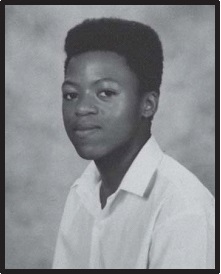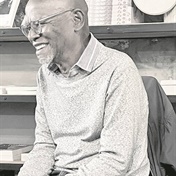
In his new book, author Khaya Dlanga writes about the unbelievable encounters and experiences that have happened to him.
These Things Really Do Happen To Me
By Khaya Dlanga
Pan Macmillan
My brief career as a pageant boy
When I was about 12 years old, my uncle, Theobold Senzangakhona Mshumi, was a deacon at a local Anglican church, St Francis, in Mdantsane. He was a well-regarded and respected member of the church, a beloved figure in the community. My uncle was charismatic, and had a connecting beard long before it became fashionable.
Senzangakhona had four daughters: Nobulali, Unathi, Qiqa and Malubekho, and was married to my mother’s sister, Nolulama.
Since Senzangakhona and Nolulama had no sons, I had to spend some weekends at their family home to perform some “boy” duties. As if cutting grass with garden shears at my home all Saturday was not enough, I also had to go to my uncle’s place to do the same.
One day, my uncle told my mother that he wanted me to participate in a fundraiser for the church. However, this fundraiser required me to be, what we called back then, a modla (model). I was to participate and enter Mr St Francis oonobuhle (pageant).
I protested vehemently to my mother. The prospect of parading myself before the whole community terrified me no end. But my uncle, aunt and mother all made the dictatorial decision of forcing me to enter this contest. I had heart palpitations and death wishes the whole week leading up to this hell my family had decided I deserved.
I had just recently moved from the village to join my mother in the bustling township of Mdantsane. Township life and the ways of the sophisticated city were new to me. Granted, I was used to visiting the township during the December holidays for about two weeks, before going back to stay with my grandparents in the village of Dutyini. But as anyone from a village knows, you can’t wipe out an entire lifetime of village ways in two weeks.
I had to enter this pageant and learn to walk a certain way. The horror. The only walk I knew was that of a herdboy: walking fast with purpose and no grace whatsoever. My walk had the heavy and determined stomp of someone used to walking without shoes.
My grandfather, Alfred Kaiser Boyce, did not want his grandson to walk without purpose. When he felt that I was walking too slowly after summoning me, he would always shout, “Theni uhamba nje ngomfazi? Gijima, kwedini!” (Why are you walking like a woman? Run, boy!) The moment he started shouting, I started running towards him, with my stick pointed up in the air, before he could even finish his sentence.
Now imagine this kid from a rural village who’s only used to stomping his feet forcefully. Being part of this pageant was unbearably torturous.
On the day of the event, all the contestants – boys and girls – had to go to the church hall and learn how to walk and where to turn. Finally, the event happened in front of a packed hall. The community had come in their numbers, all paying to raise funds for the church. It was so packed, there was no standing room. It was hot and we were wearing blazers to boot. Wonderful.
How I walked or what I did on stage has forever been erased from my memory. Eventually, it was time to announce Mr St Francis. All 20 or so of us stood in one line. We were all numbered, so there I stood – with a full head of long hair and the number six stuck to my blazer (I had also had a perm and my hair was the envy of many women).
They announced the top five. Annoyingly, I made the cut. Don’t get me wrong – as much as I didn’t want to win, I also wanted to win. I wanted to win because I didn’t want to be a loser. I didn’t want it because I could just hear my grandfather’s voice back in the village asking, “kutheni ungena iinto zabafazi?” (Why are you participating in women’s things?)
The five of us now had to stand in line in front of this enthusiastic mob. The MC announced the two runners-up. I was neither. I wanted the misery to end.
Then, instead of announcing the winner, the MC asked the packed hall: “Who do you think won?”
Deafening cries of “number six! number six!” rang through the hall. My heart performed somersaults. There was no doubt that I was the ?rm favourite. I don’t know why.
The MC took hold of his piece of paper and said, “number eight!” At that precise moment, I took an unconscious step forward, stepping out of the line. In my mind, the judges would have seen what the audience saw. Then I realised that my number, number six, hadn’t been called out. I took a swift, sheepish step backwards.
Anyhow, the winner of Miss St Francis liked me, so I won either way.
I have a sneaking suspicion that my pageant experience is the reason I was selected to judge 2018’s Miss South Africa. Right?




 Publications
Publications
 Partners
Partners









